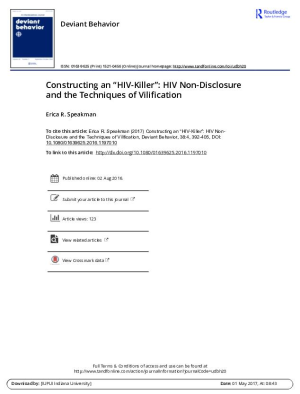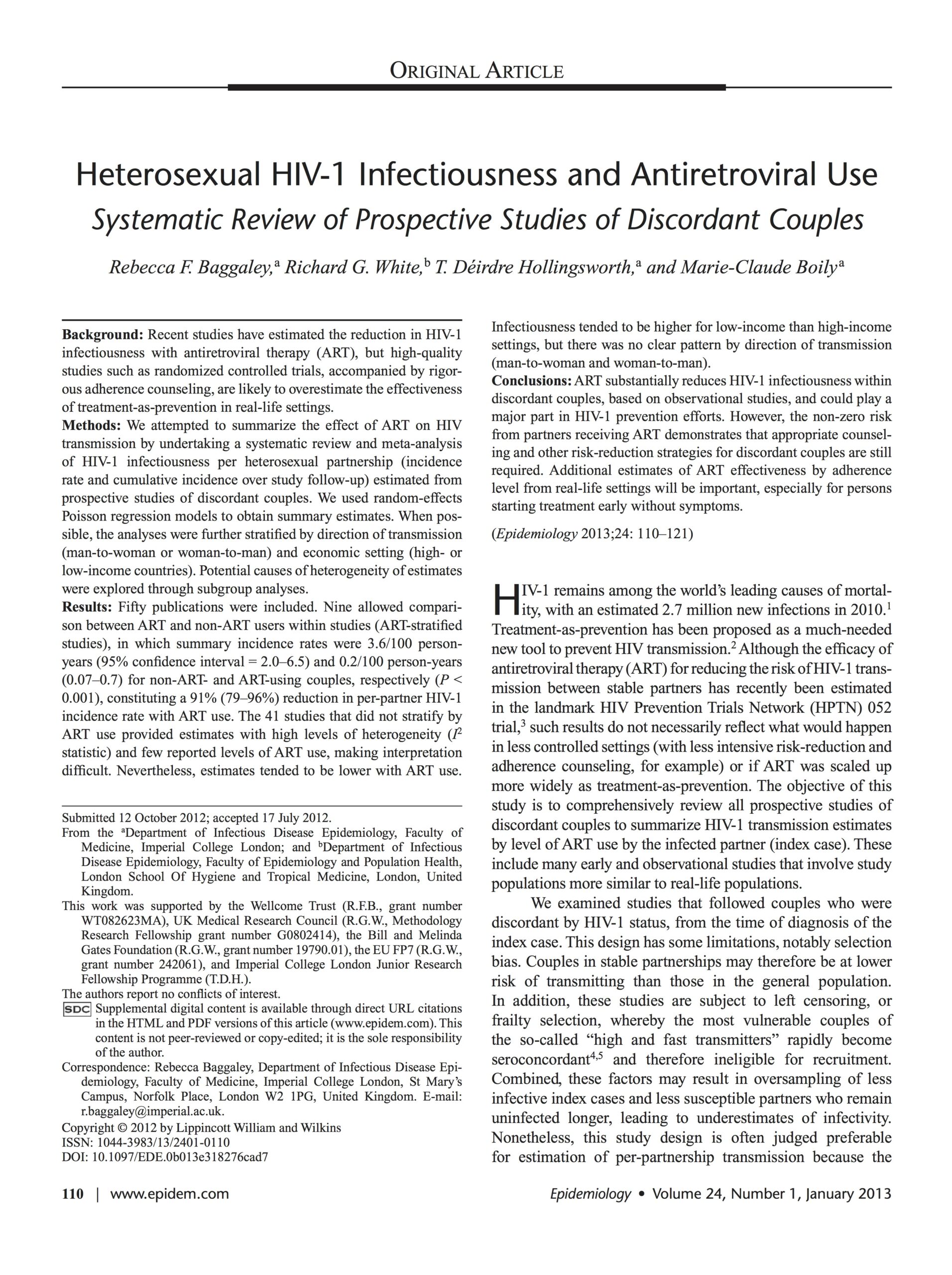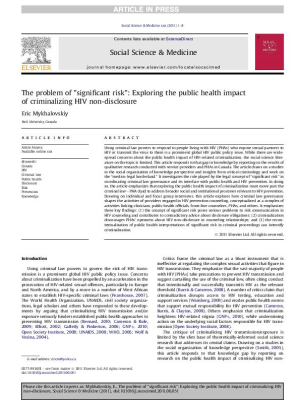Constructing an “HIV-Killer”: HIV Non-Disclosure and the Techniques of Vilification
An analysis of the notorious Canadian criminal case of Johnson Aziga. The article outlines five key ways that people living with HIV who do not disclose their status to a sexual partner are characterised as dangerous by both the criminal justice system and the media.
Heterosexual HIV-1 infectiousness and antiretroviral use: systematic review of prospective studies of discordant couples
Systemic review and meta-analysis of 50 studies considered HIV transmission risk between heterosexual partners. Found ART substantially reduces HIV infection risk within serodiscordant couples.
The problem of ‘significant risk’: Exploring the public health impact of criminalizing HIV non-disclosure
Emphasizes that the concept of significant risk undermines communication about transmission risk during HIV counselling and contributes to contradictory advice about disclosure obligations. Criminalization discourages openness about HIV non-disclosure in counselling relationships. The recontextualization of public health interpretations of significant risk in criminal proceedings can intensify criminalization.



